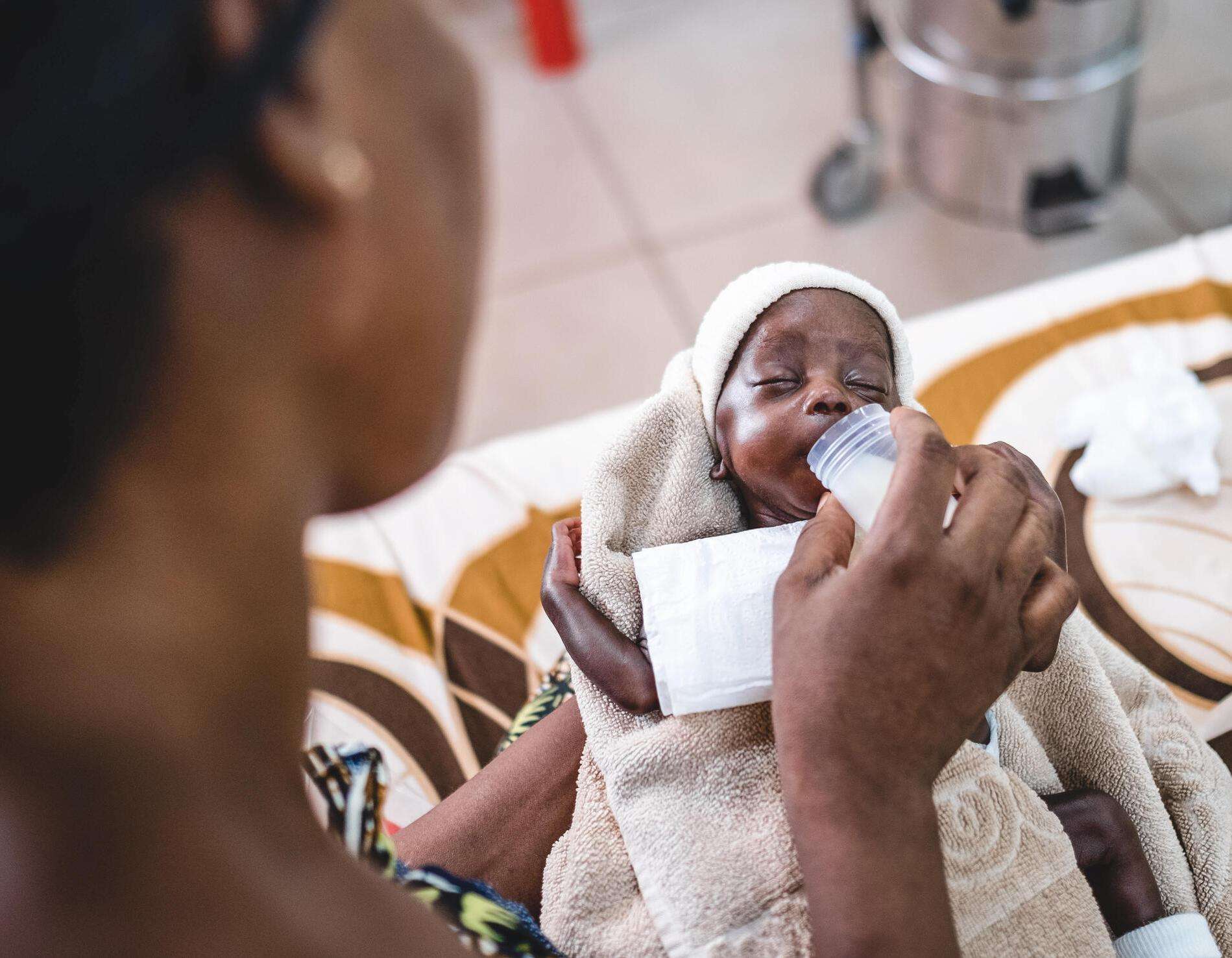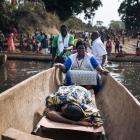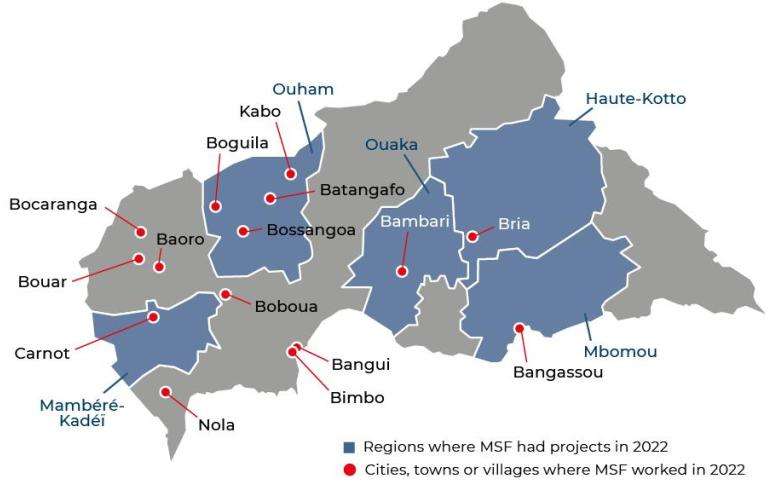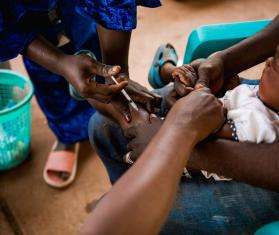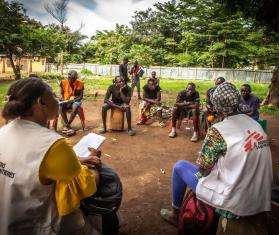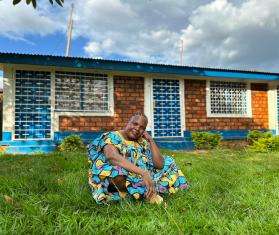We continued to run 12 basic and specialist health care projects across the country, focusing on maternal and child health, surgery, sexual violence, and treatment for HIV and tuberculosis. We implement a decentralized model of care where possible, thereby delivering services closer to patients.
We also responded to outbreaks of diseases resulting from low vaccination coverage, such as whooping cough in Baoro, and launched a vaccination campaign in Kembé to offer protection from preventable diseases, including measles, polio, yellow fever, and meningitis.
In Ippy, we assisted thousands of people displaced by fighting by providing medical care and multi-antigen vaccinations, installing water and sanitation facilities, and distributing relief items.
Malaria remained the leading reason for visits to our health facilities and the main cause of death among children under five.
In line with continuous efforts made since 2014 to reduce maternal and child death rates in the capital, Bangui, MSF completed the construction of new maternity and neonatal wards in a hospital and started providing emergency obstetric and neonatal care.
